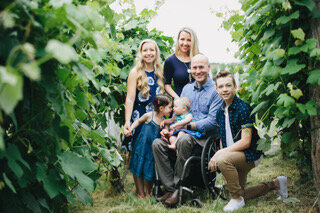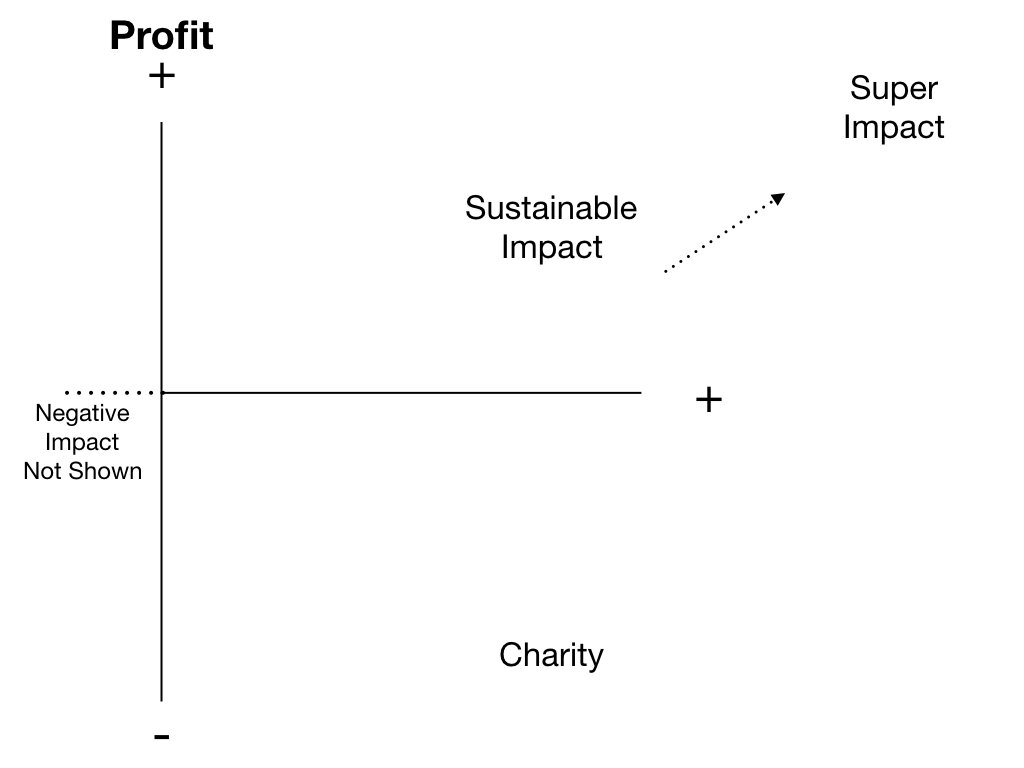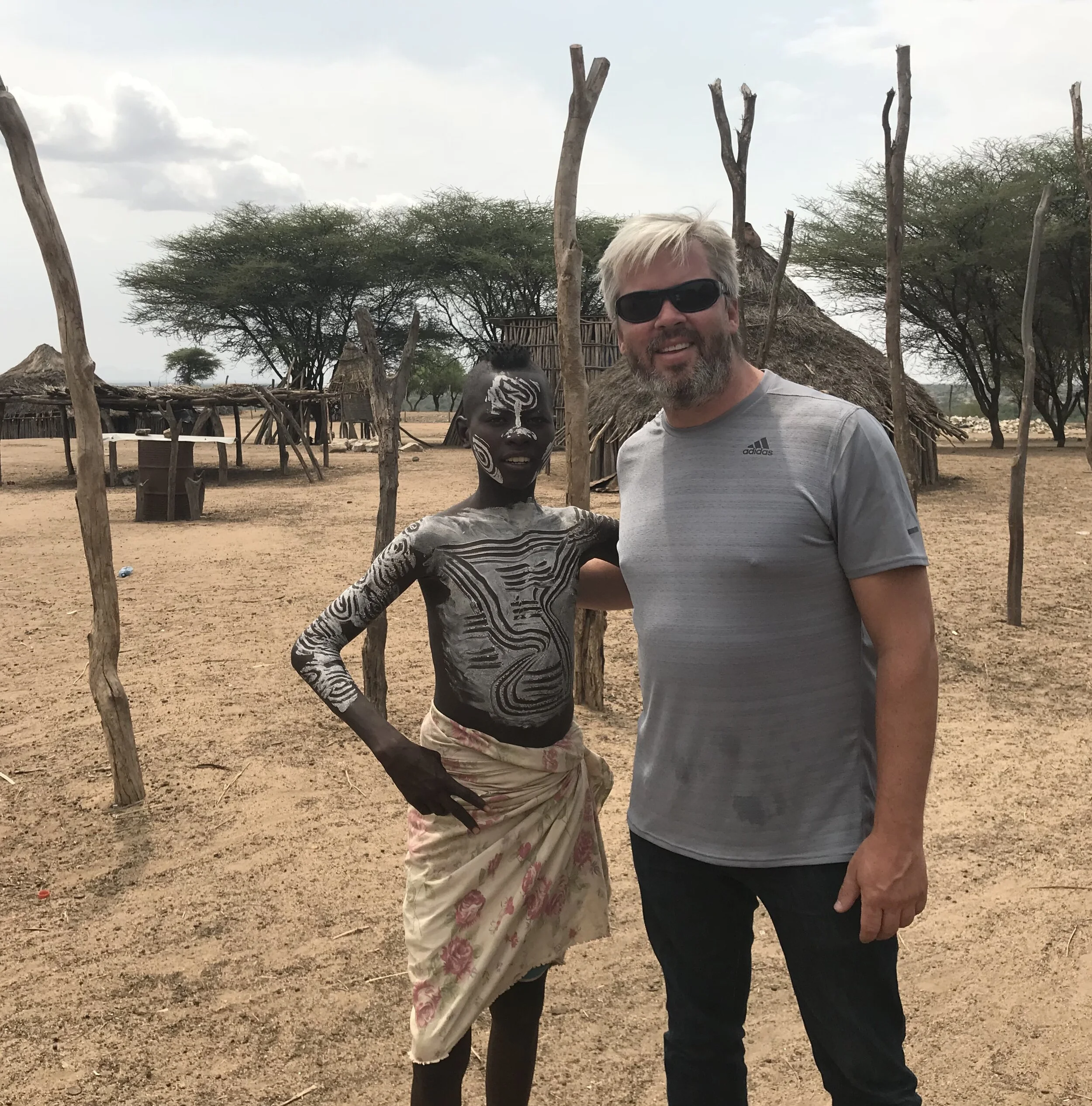
Heartache Spawns A New Venture Capital Company
On a Wednesday evening in the spring of 2004, Erik was driving from his work as a fundraiser at the University of Portland to Athey Creek Middle School in West Linn, Oregon, the location his churched used as a meeting place for its Sunday services and Wednesday night Bible study. On this particular afternoon when it seemed like everyone was either out mowing their lawns or running in the warm sunshine, the desire to run hit Erik deep in his core. The only problem was that Erik hadn’t run – he hadn’t walked or even stood up on his own – in nine years. Erik had been paralyzed in an ATV accident on his family farm in 1995 when he was just 16 years old.

WeWork Got One Thing Right: Reimagining Work
In a previous blog, we wrote about two key failings of the fizzled WeWork IPO. In this article, we discuss what the company got right—attempting to rewrite the rules for work to better fit the needs and expectations of modern workers. Even with the right goal, however, WeWork ultimately fails to reach it. The only way to truly align work with human flourishing is to understand and apply a biblical framework.

Where WeWork Went Wrong and What We Can Learn From It
One of the most anticipated IPO’s of 2019 hit enormous roadblocks and it serves as a powerful case study for us. In private fundraising rounds, Adam Nuemann, WeWork’s CEO, enjoyed incredible favor with investors. That favor finally ran out as skeptical Wall Street investors found flaws in the company’s governance, valuation, business model, and expense structure. This pushback from investors caused WeWork’s parent company to withdraw its planned IPO.
Here’s what WeWork did NOT have, but you should if you hope to raise money from impact investors.

Impacting Lives through Agriculture: AgGrandize Global
Approximately 500 million smallholder farmers in the developing world operate farms under 13 acres. They play an outsized role in reaching the U.N. Sustainable development goal of zero hunger. It is estimated that these smallholder farms operate on 12% of the world's agricultural land and produce 80% of the food consumed in Asia and sub-Saharan Africa. And yet, these farmers often lack the training and access to resources to optimize their land. AgGrandize Global works to meet these needs through partnerships worldwide. The AGG team serves two distinct, but interdependent customers.

Rethinking Risk/Reward as a Steward Investor
“Was Jesus’ work as a carpenter as valuable as His work in public ministry preaching and healing?”
That seemed to stump people I asked, until one day, a friend of mine responded, “Don’t you realize that everything Jesus did was simply in direct obedience to the Father? So when Jesus was working as a carpenter he would have been out of the Father’s will if he had chosen to go into public ministry too early.”

The Power of Investment Gleaning
Would loaning money to this company at less than market-rate interest be a bad investment? Many well-meaning investors are split on questions like this. Some argue that profit maximization is always the goal. More profit, more impact, right? And often that’s the line that secular impact investing keeps feeding us. A major study by the Global Impact Investing Network suggests there’s no trade-off between profit and impact.
Does that need to be our definition of success too?

LLC, S Corporation, L3C, Benefit Corporation?
Every profession has its hazards. For mine, it’s lawyer jokes and requests for free legal advice. This blog contains neither, but it will provide a little education on the basic options when forming a company so you’ll sound smart when you call your own counsel.

Should I start a business or a non-profit?
Anytime someone says, “I’m thinking of starting a nonprofit,” my immediate thought is to make sure I can’t talk them out of it.
As Dan Palotta points out in his semi-famous Ted Talk titled “The Way We Think about Charity is Dead Wrong”, charities/nonprofits face tremendous headwinds toward scalability. Palotta examined the number of organizations surpassing $50M in revenue since 1970, and found only 144 charities reached that level while 46,136 for-profit companies did.

How much Impact and Financial Return is Possible?
Without clarity, we can’t know what to expect when entering into impact investments; lack of clear expectations will almost always lead to disappointment.
That’s why we've developed a framework that can help make sense of the interplay between impact and financial return.
We have seen hundreds of companies tackling a wide range of issues through business models as diverse as bus seat manufacturing, hydroelectric power, software development, and a cattle feed lot. Likewise, the potential return for investors is equally varied.

SAFE or Convertible Note?
Should I offer investors a SAFE or a convertible note? What’s the difference and is one always better than the other?

Best Practices in Redemptive Methodology
REDEMPTIVE METHODOLOGY defined
An enterprise whose primary positive impact on the world happens through the way business is conducted. Its leadership, being rooted in Christ, follows the Spirit with intentionality for how they can participate in God's transformational work in the lives of employees, vendors, & customers while creating sustainable value. Read more and discover best practices.

Ethiopia: Understanding the Verdant Model
The Verdant leadership team has spent a great deal of time putting together their framework for how they cultivate new opportunities. Starting with small explorations, they then perform a standard set of rigorous tests before committing in a significant way.
Having spent a week with the team on the ground as an outside observer, we noted there are three key drivers of success…

Ethiopia: What Does it Take to Find Success?
As a previous post discussed, aid isn't enough to sustainably overcome poverty. What we need is large-scale efforts: from far-reaching Microfinance to big businesses. This blog focuses on the Verdant Frontiers family of companies—Verde Beef, Verdant Consulting, and Verdant Ventures—and their efforts to reach scale in extreme conditions.
So far, Verdant Frontiers is generating more than 12,000 ongoing, long-term incomes in the local community. Having a positive impact with this kind of scale takes dedication, business excellence, and God’s merciful provision.

Ethiopia: Jobs, Not Aid, Is the Most Urgent Need
“Jobs, not aid, are the most urgent need of these starving people,” I thought. We crouched on the dirt floor of a twelve-foot diameter grass hut in the Omo River Valley of Southern Ethiopia. Twenty-one hours away from the capital city live the Kara, Hammar, and Benna tribes—people who use cell phones to communicate but whose ways are otherwise unchanged from those of their ancestors who settled the region thousands of years ago. Picture the most remote tribal images you have seen in a National Geographicmagazine, and you are likely thinking of these people groups.

Three Trends in Impact Investing for 2018
Impact Foundation exists to invest charitable capital for economic, social, and spiritual transformation, our version of impact investing. It's the next iteration of philanthropy because innovative foundations and givers have recognized that all enterprises, not just charities, can produce both social and financial results on a spectrum from positive to negative. While we whole-heartedly believe impact investing is here for the long run, not everyone lives every day in this world. That's why we bring you this summary of the most important conversations in impact investing.

PS Kitchen in the News
Check out some of the great press on our favorite NYC restaurant, PS Kitchen.
We're so grateful to have been a part of this incredible project from the early days. NBC New York was so taken by the story of hope and empowerment (not to mention super yummy vegan dishes) they spotlighted PS Kitchen.
And here's yet another spotlight of PS Kitchen from Redeemer NYC.

Our visions of work and business are anemic
Increasingly, Christians have come to hope, and perhaps even expect, there is more to the idea of Kingdom impact through business. The faith at work conversation has made much progress in the past decade to remind us of the theological importance of our day-to-day work. Through the efforts of countless authors, parachurch ministries, and pastors, we've been taught that work provides an opportunity for living the gospel and witnessing to our neighbors….

Why invest in “redemptive business”
Expanding on traditional Evangelism/Discipleship, the idea of Redemptive Methodology borrows heavily from Praxis Labs’ concept of a “redemptive entrepreneur”, or one who seeks to embody the gospel in creating and building a venture that leaves a meaningful impact on the world.
Businesses built by these kinds of entrepreneurs may engage in “evangelism” as traditionally defined – explaining the pathway to eternal salvation. And they go beyond that to live out the Gospel through the products and services they provide and the way they conduct business.

What Will I Leave Behind?
I was 17 when my dad died. It was sudden and deeply disorienting. Those days and weeks immediately afterward were a dense fog of grief and cleanup. He died without a will or estate plan (mainly because he had nothing to plan).
As the youngest of 5 kids and the only one still living at home without an adult job, I received the largest "inheritance". After paying all the bills, my dad’s “estate” consisted of $3,000, a small plastic trash can full of change, and a few mementos. I got the entire checking account and the trashcan of change, which I used to feed the laundry machines in my freshman year of college.

